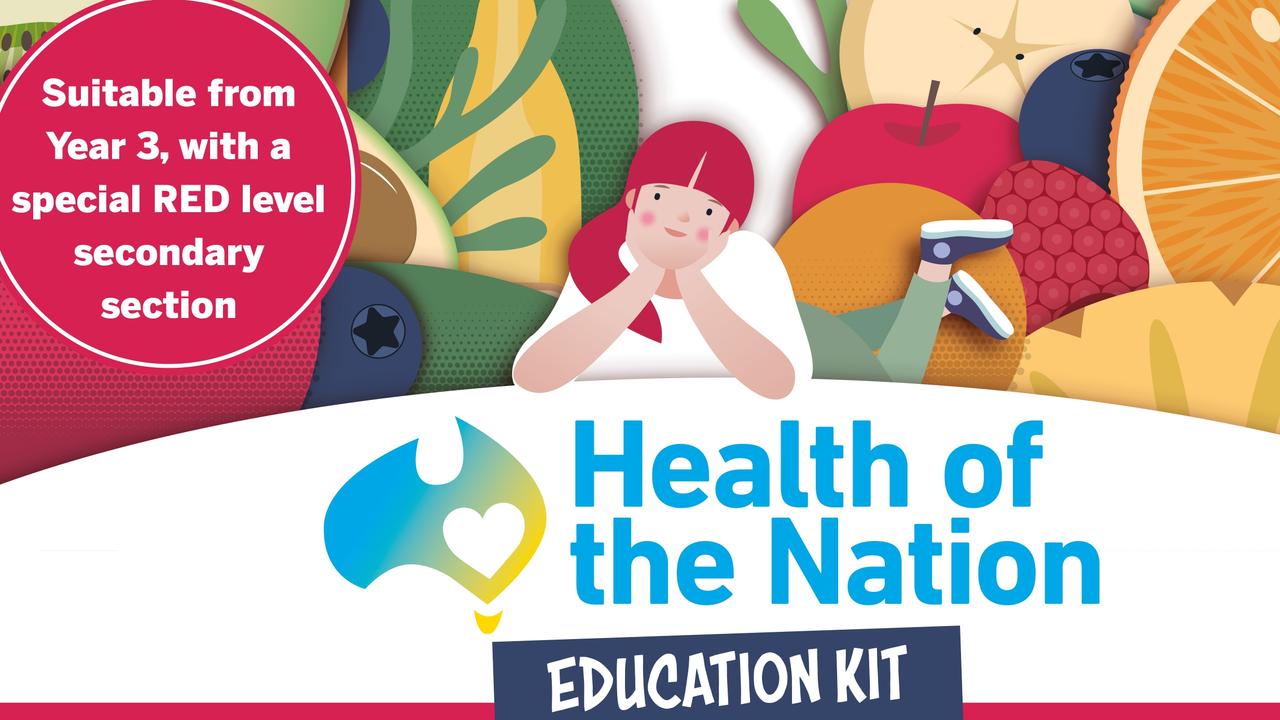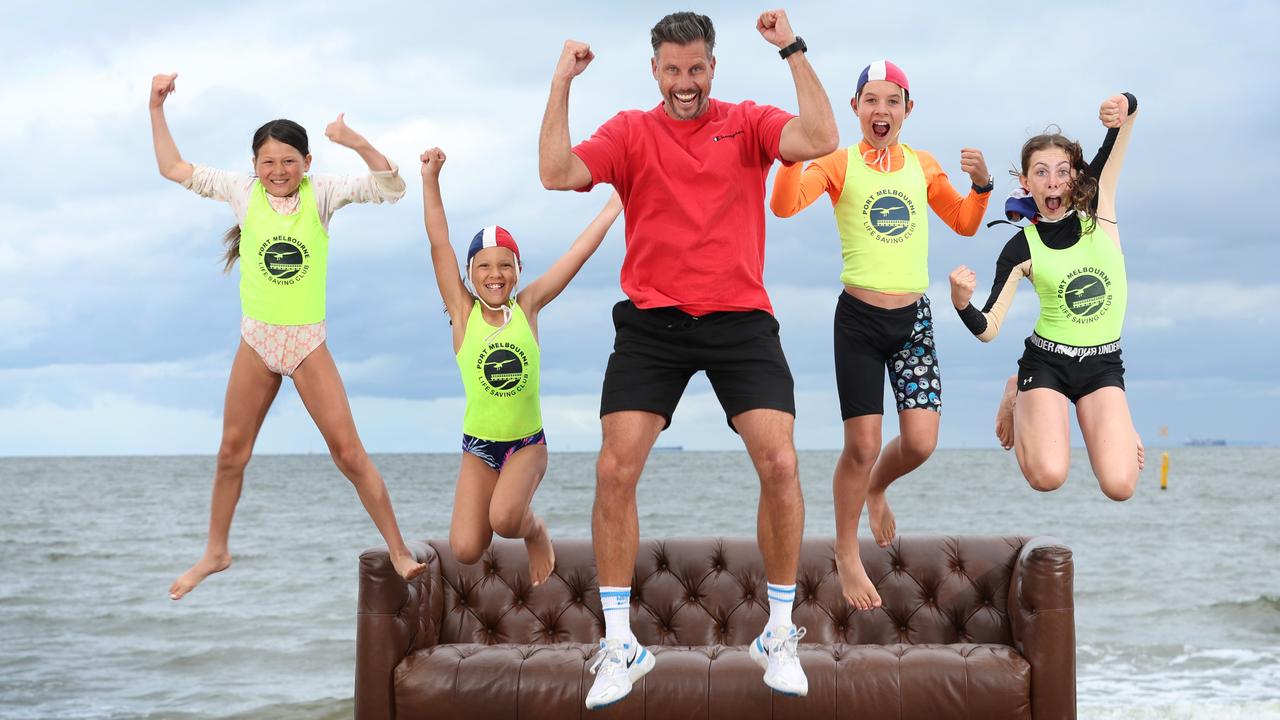Health of the Nation 2024: Devices, mental health and tackling cyberbullying
Parts 5 & 6: Students are using tech to eat better and move more. While Aussie teens are being taught to manage their own screen time in a world-first program aimed at improving mental health
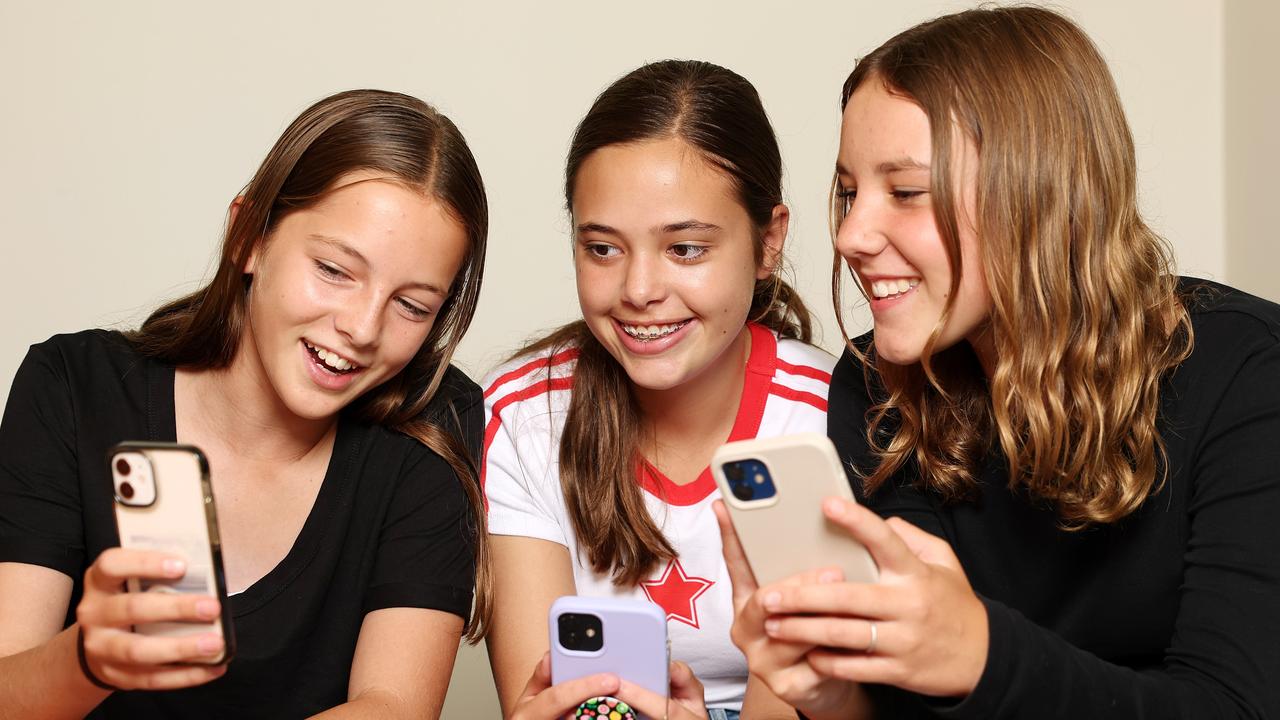
READING LEVEL: GREEN
PART 5: TECH AND KIDS’ HEALTH
Technology and computer games are often blamed for making kids less active, but new research shows these tools could be the answer to getting children moving and eating healthier food.
Sydney University recently gave kids wristband activity trackers, and information on a computer tablet about heart rate and step counts, and their activity levels increased by 30 per cent.
And health agencies are now creating Bluey-style animated* computer games to turn eating healthy food into adventures that appeal to school-aged kids.
But why are such measures needed?
Paediatrician* Louise Baur said we need to use more modern ways to engage children in healthy activities to improve their health.

She said rising obesity* levels in primary school children are resulting in them being treated for type two diabetes, fatty liver disease and sleep apnoea* because of their size.
“Some have required surgery on their growing bones because of excess* weight. When I was a medical student, and when I was a junior doctor in the 1980s, we didn’t see children with type two diabetes*,” Professor Baur, a University of Sydney obesity expert, said.
On the most recent measurements from 2022, nearly one in four Australian children (25.2 per cent) are overweight or obese by the time they start school.
MAKING HEALTHY EATING FUN
Queensland Health and Wellbeing* has developed an app called Podsquad that has turned eating healthy food into an online game for children.
Children enter a world called Amigo, which they explore through a map. Sites on the map open up an animated game that teaches children about healthy eating or moving.
For example, at the Evercloud mountains they learn about balancing “every day” and “sometimes” food and drinks. While they explore, children meet colourful, little creatures called epipods which give them quests* to undertake back in the real world.
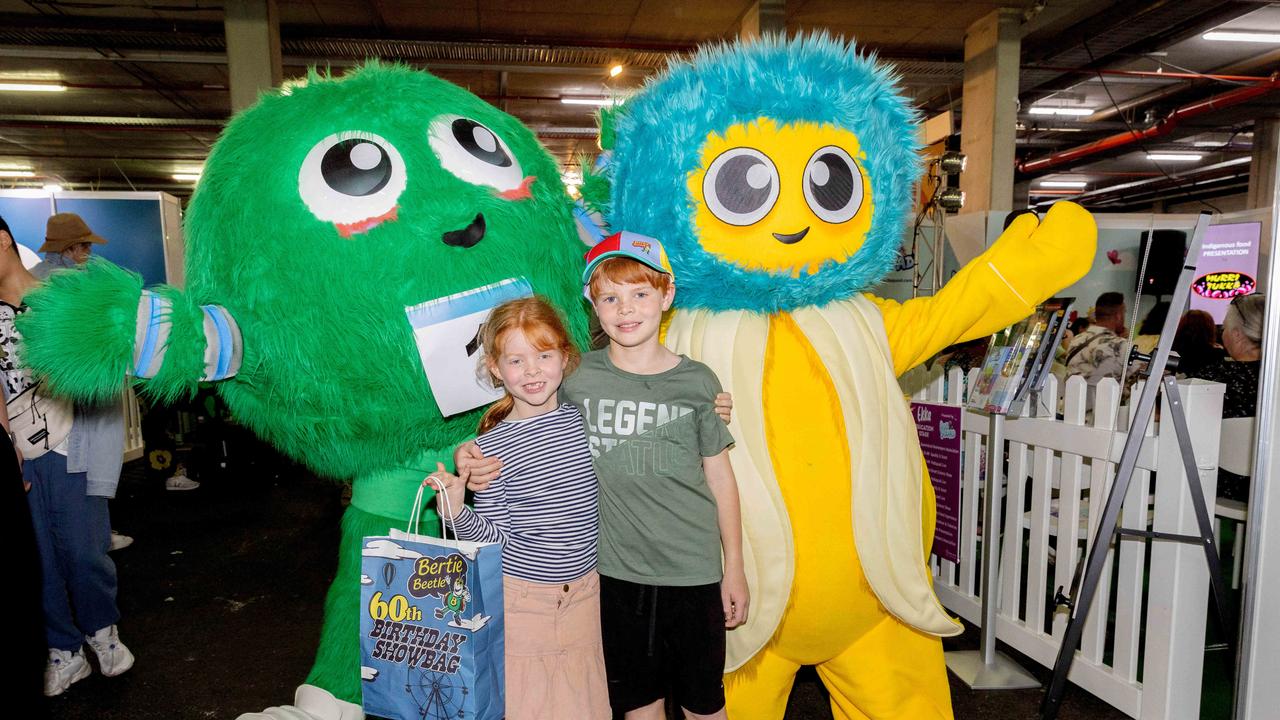
The epipods encourage them to drink more water by asking the children to become the water waiter for their family and set out and fill glasses on the dinner table.
When kids report back that they fulfilled the quest, it changes into a new character allowing them to gather their collection of up to 40 epipods.
“There’s a game called Food Hunter, like a Where’s Wally map, and kids check up items on their shopping list and look for those illustrations of the food in the crazy map so they are exposed* to different fruits and vegetables,” Queensland Health and Wellbeing’s Rebecca Farlatti said.
“So it’s not just about eating that vegetable (straightaway). It could be, you know, seeing the bok choy in a game might make kids more familiar with it and then one day down the line, they might be more willing to have it on their plate.”
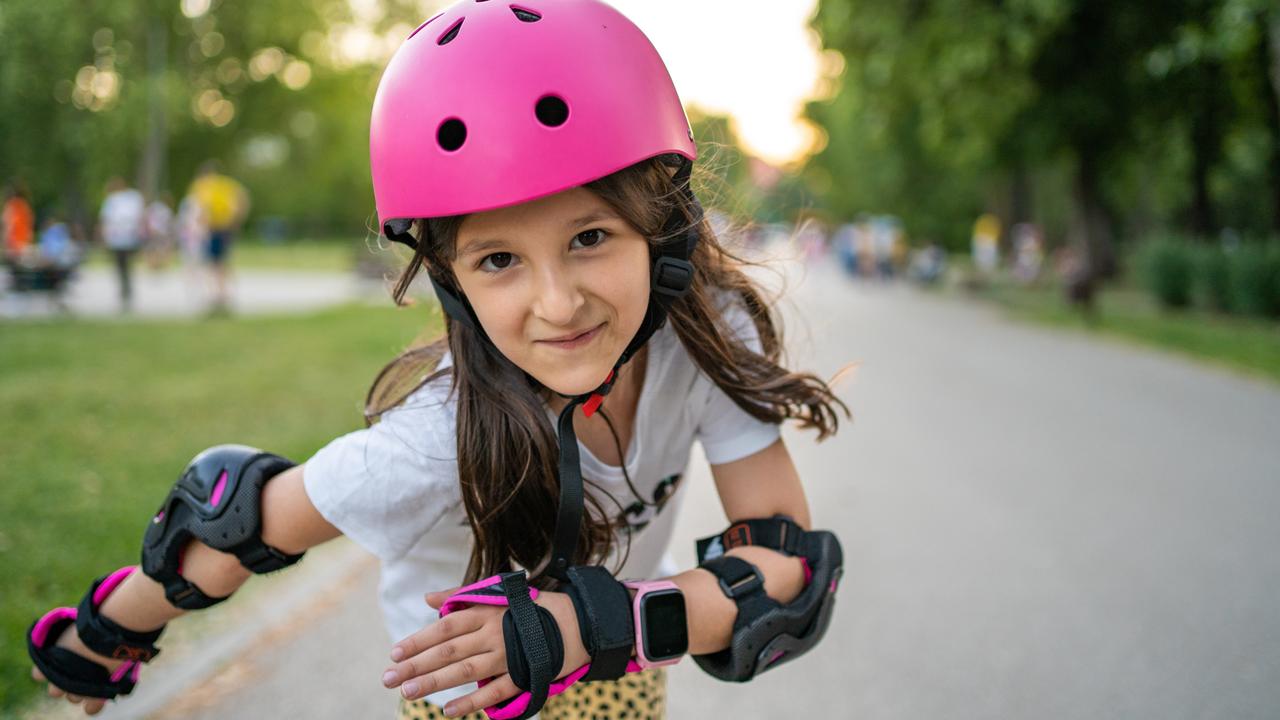
TECH KEEPS KIDS ON TRACK
University of Sydney physiology expert Professor Corrine Caillaud said it was pleasing to see positive results from the recent study of students fitted with wrist-worn activity trackers.
Over five weeks, the Grade 4 to Grade 6 students at two primary schools were encouraged to increase their level of “huff and puff” exercises.
The study focused on setting physical activity goals and taught the kids how to track their progress through an online health education and behaviour change app.
It found boys increased their goals and achievements faster than girls.
“The kids found time (to move more),” Prof Caillaud said.
“It was most often in short bouts* of physical activity and that’s completely fine. It doesn’t need to be the 60 minutes in a row. If the activity is shorter and more intense that’s actually even better to trigger heart rates and it will have stronger impact on muscle strength.”
One young Australian who knows the benefits of tracking his fitness is Owen Harvey from Sydney.
At just age nine, he is already in his second year of a Nippers Junior program at his local beach.
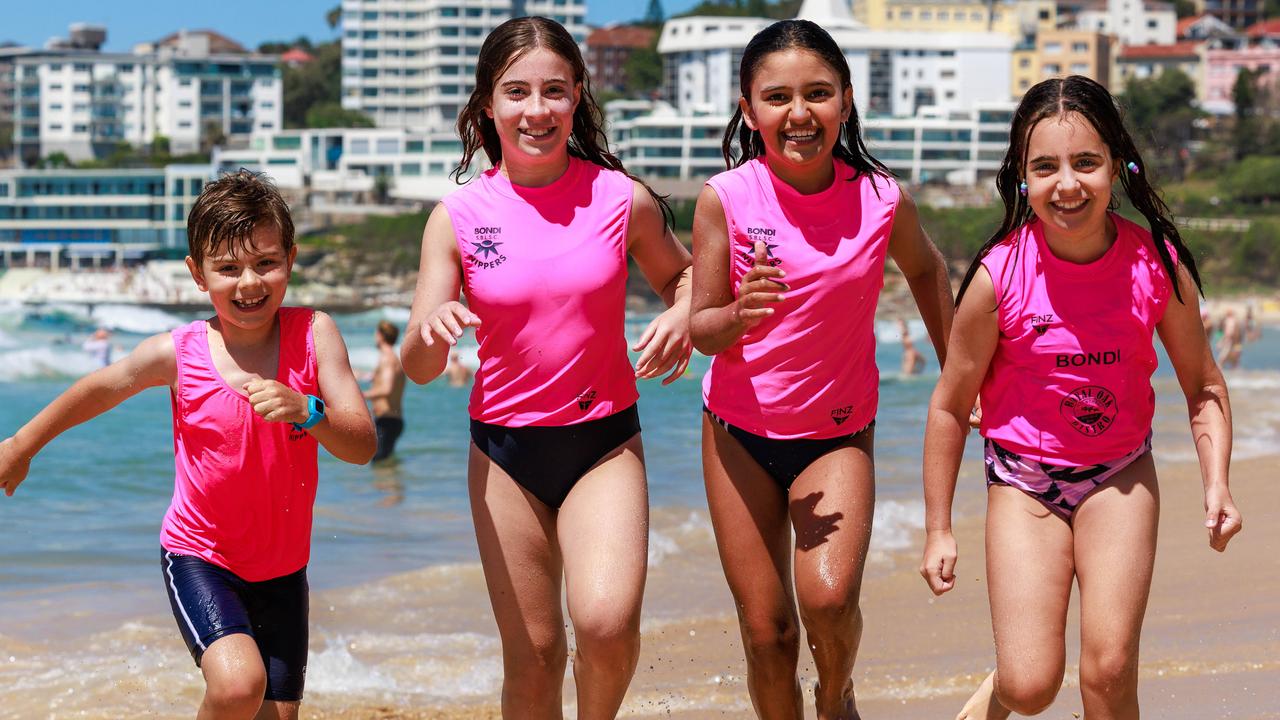
“You get to have fun and enjoy yourself,” Owen said of the program that encourages kids over five to keep fit and learn lifesaving water skills.
“Nippers also provides the opportunity to become part of a wonderful community while developing lifesaving skills,” Owen’s mum Belinda Harvey said.
With exercise being an important daily routine for the Harvey family, Ms Harvey said her son enjoys using his smartwatch to track his fitness goals and “loves it when he hits his step or exercise goals for the day”.
“I like getting to know how much I do and what time it is,” Owen said.
PART 6: DEVICES, MENTAL HEALTH AND CYBERBULLYING
Australian children are being given lessons at school on how to manage their own screen time.
A program involving 3000 tweens* and teens started in February and is expected to scale up to include 30,000 Year 7 and 8 children from 2025.
It is being delivered by the mental health charity Black Dog Institute, which has teamed up with the Bupa Foundation to provide the world-first program.
The recent News Corp Australia Health of the Nation survey found half of Aussies felt sad or depressed after scrolling through their social media.
Black Dog Institute Associate Professor Aliza Werner-Seidler said they started the program because young people were asking for help on how to manage their online lives.
“They have been telling us they want help,” Assoc Prof Werner-Seidler said. “But it is not about getting them off their devices*, it’s about teaching them healthy ways to use them.”
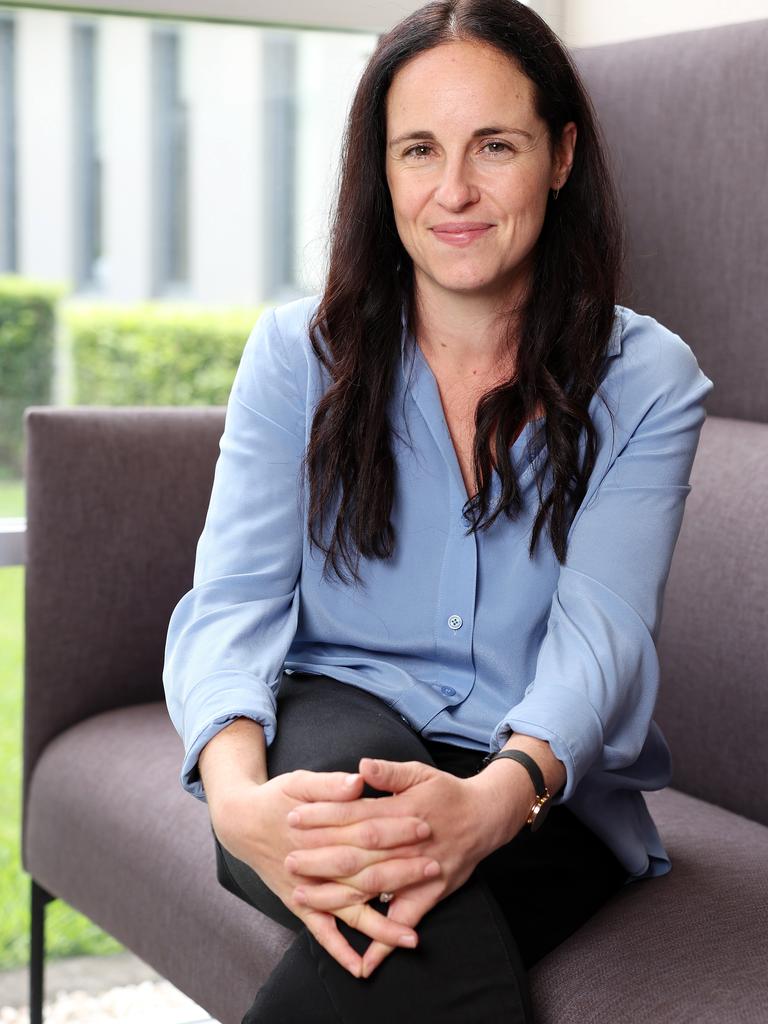
She said the 20-minute in-school program would target children just as they begin to use their devices more independently*.
She said the aim was to get children to understand the link between what they’re doing online and how it makes them feel. If watching certain videos is making them feel bad, to understand that special commands called algorithms* are built into the games, social media sites or devices that will continue to show them those types of videos, and how best to manage that.
The educators will use facts to explain why they need to balance screen time with physical exercise and face-to-face contact with family and friends.
“Every person is different, so how long someone should spend online is down to the individual, but we want to give them the tools and information to make the right choices,” Assoc Prof Werner-Seidler said.
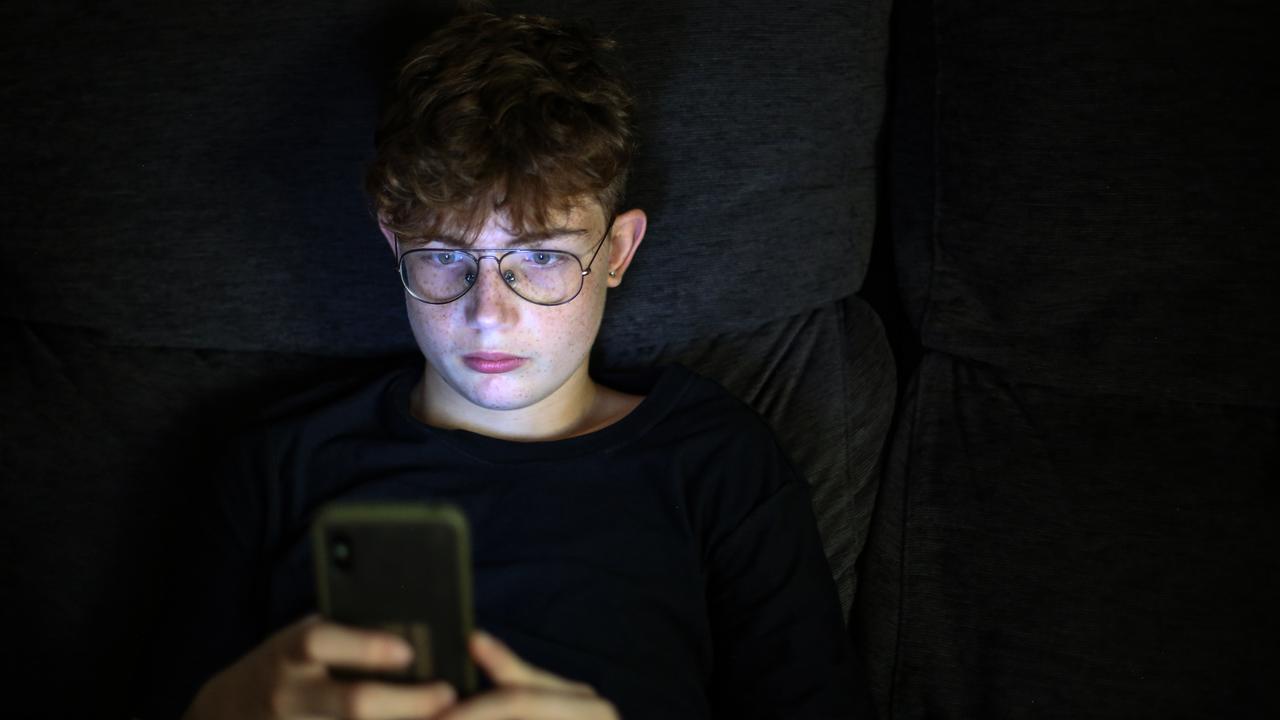
She said they deliberately chose children aged 12 to 13 because those are the ages that see a large spike in depression* and anxiety* rates, making it the perfect time to work with young people to boost their resilience* and stop mental illness.
There will also be webinars for parents to help them support their kids.
MONITORING PHONE USE
Black Dog Institute is trialling another program with Deakin University that can detect if someone’s mental health is deteriorating* just by analysing what they’re doing on their phone.
Clinical psychologist* Peter Baldwin said the program was aimed at young adults and can detect any unusual behaviour and send the user an alert to seek help.
Dr Baldwin said everyone had their own unique digital footprint, from what apps they looked at online and when, to the way they typed, amount of physical activity and the usual places they visited.
He said the program tracked all these elements and could even tell if someone was sitting up or lying down when they used their mobiles and whether it was unusual for that individual.
Dr Baldwin said technology advances could soon see us “all have a therapist* in our pocket”.
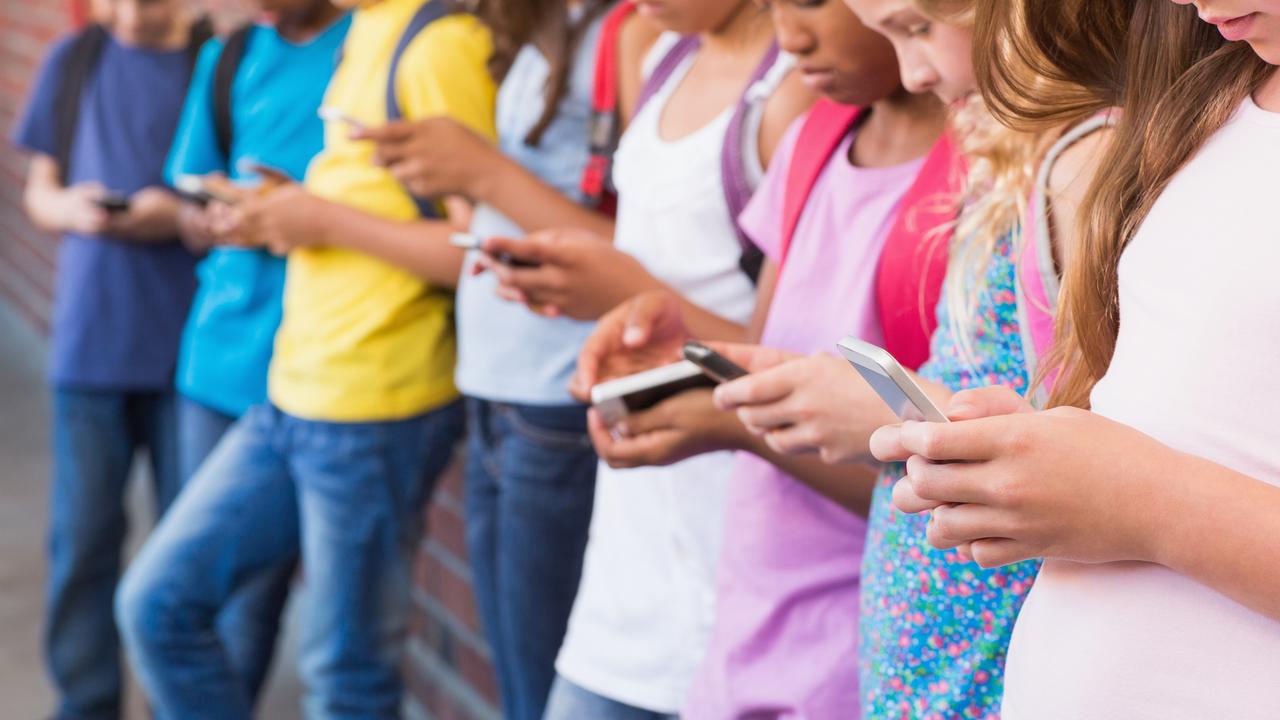
KIDS AGREE WITH TIME LIMITS
When Hazel Easter’s parents told her they wanted to put a time limit on how long she could spend on social media, she wasn’t happy.
But after discussing it, they came to an agreed three-hour limit a day, including Snapchat, which is her main way to communicate with friends.
Hazel, 12, admits TikTok is her biggest time waster, and when she gets a five-minute warning on her device that she is approaching her limit, she often can’t believe she’s been on it that long.
“I don’t mind the time limit, it gets me off my phone and doing something else, like doing things with family and friends,” Hazel said. “It’s actually nice getting off it, rather than just sitting in my bedroom doing nothing.”
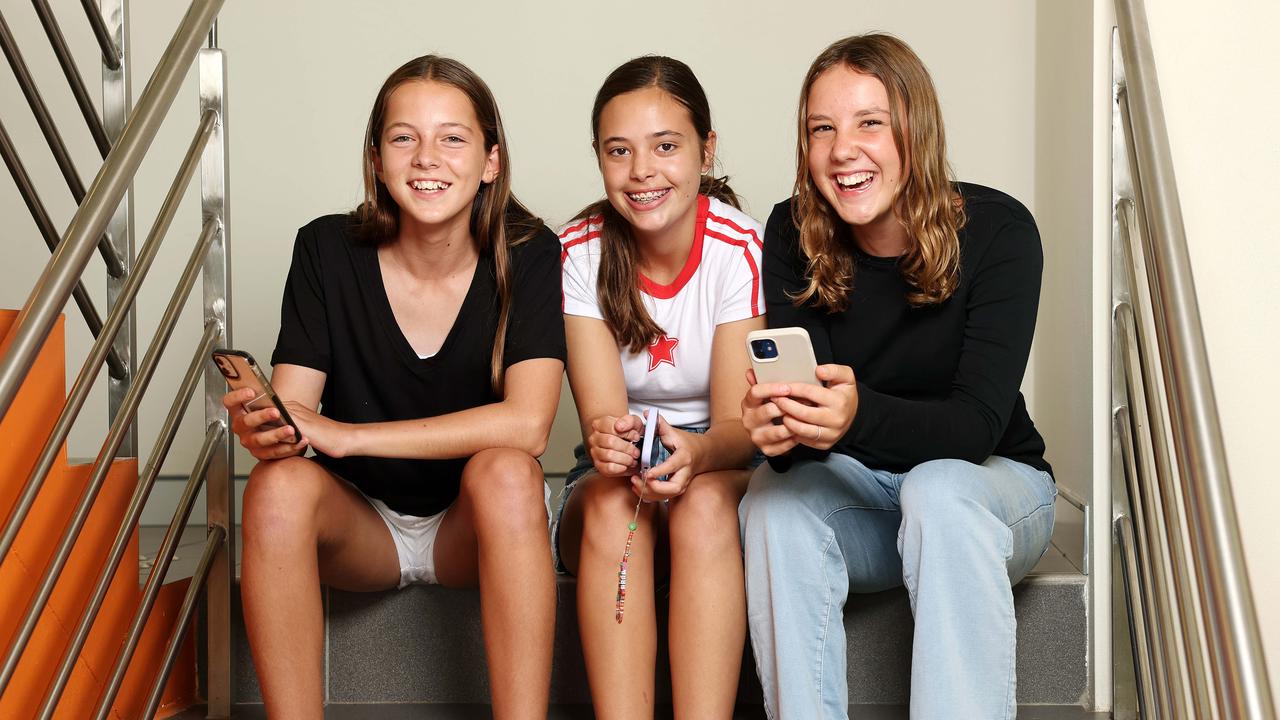
Her friend Frankie Gibson, 13, agreed that it was easy to get sucked into scrolling.
“TikTok is endless, you can keep scrolling forever,” she said.
Maeya Cassim, 13, said she knows social media companies use algorithms to keep feeding users similar videos to ones they have watched.
And all three said they knew of peers who used their phones for far longer than they did and late into the night.
They all understood that their phones were addictive*, but sometimes getting off them or making healthy changes was hard.
Frankie said she took action if her scrolling turned into a negative experience.
“When an influencer* makes me feel bad about myself I unfollow them,” Frankie said.
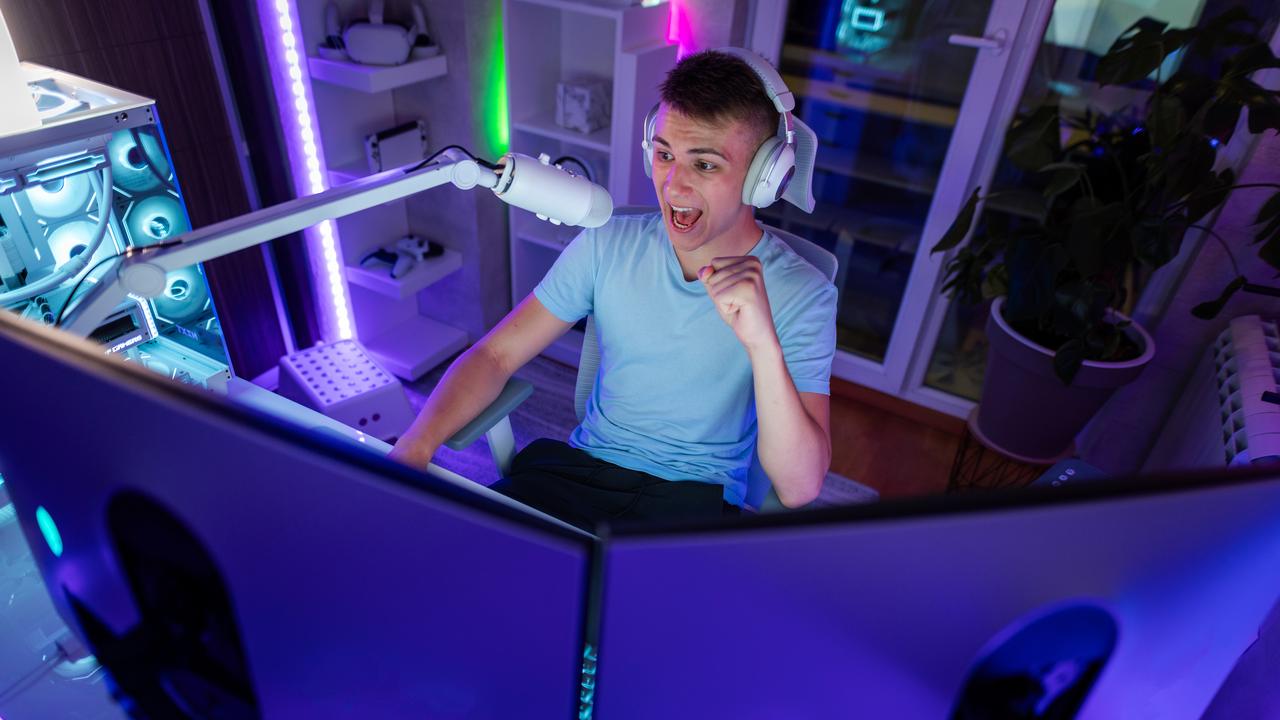
TALK TO YOUR PARENTS ABOUT SCREEN USE
Black Dog Institute Assoc Prof Aliza Werner-Seidler has this advice for kids to help manage their own screen use:
- Offer to have screen time only after all your homework has been done.
- Agree to put your screens away an hour before bed.
- Make an effort to balance screen time with other physical exercise and face-to-face time with friends.
- Talk to your parents or carer to make sure their own screen use is appropriate and healthy.
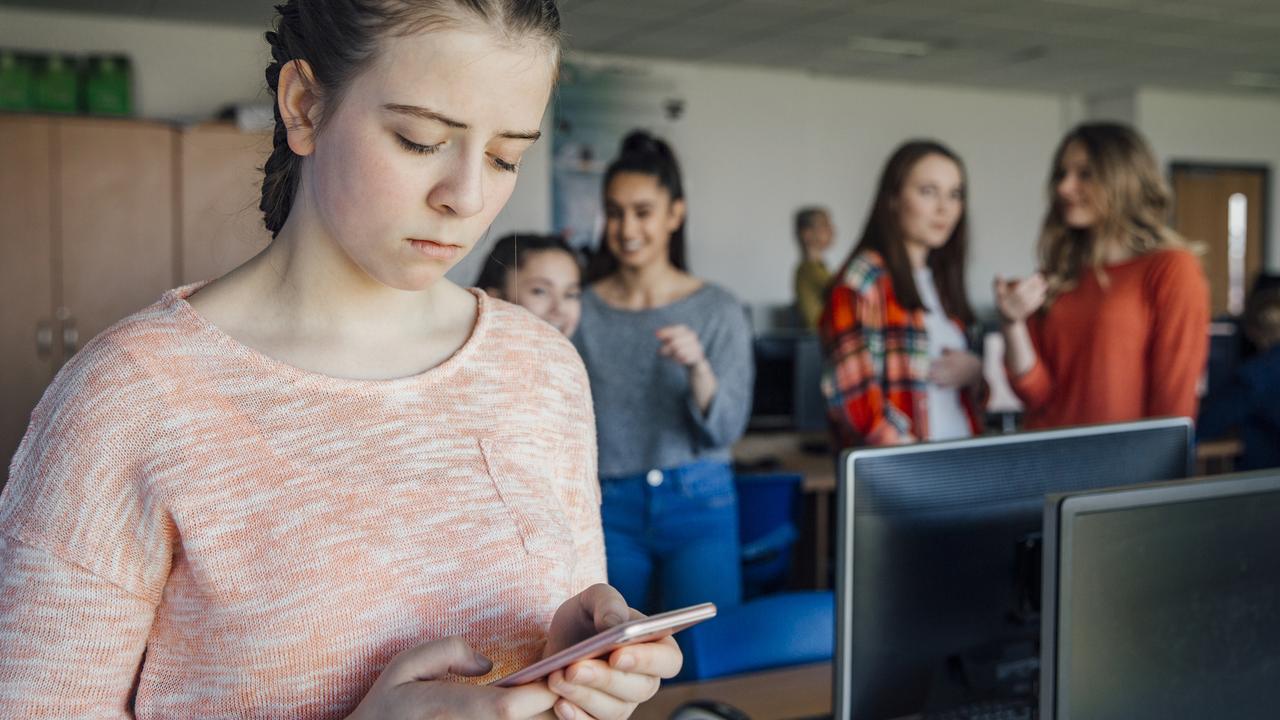
NEGATIVE ONLINE EXPERIENCES
Almost one in two young Australians (44 per cent) report having experienced negative online experiences and one in 16 experience online abuse.
Some examples of cyberbullying* include:
- Sending hurtful or abusive messages
- Spreading nasty rumours or lies about someone
- Creating fake accounts in someone’s name to embarrass them or to cause drama by sending nasty messages to their friends
- Sharing photos or videos of someone to make fun of them or humiliate them
- “Trolling” people (posting or commenting online to provoke an argument or emotional reaction)
- Threatening to hurt someone, or encouraging others to hurt them
- Making new accounts to try to keep contacting someone who has already blocked you
- Mocking or teasing someone because of personal attributes, like their race, religion, gender, sexual orientation or how they look – this is sometimes known as “online hate”
- Purposely making someone feel left out or ignored
WHAT TO DO IF YOU ARE FEELING DOWN
Black Dog Institute’s academic clinical psychologist Peter Baldwin’s practical tips on how you can help yourself if you are feeling low:
- Make use of your phone not to just scroll through social media, but to connect with friends or family to arrange a face-to-face meet up
- Don’t worry about bothering people you think are busy, they’re probably sitting in their room thinking the same thing as you. Reach out and contact them
- If you’re depressed or anxious, do the opposite of what your head is telling you; go to that party, speak to your parents or that friend, get out of bed and go for a wall
- Talk to your family, trusted friends or your doctor about how you are feeling
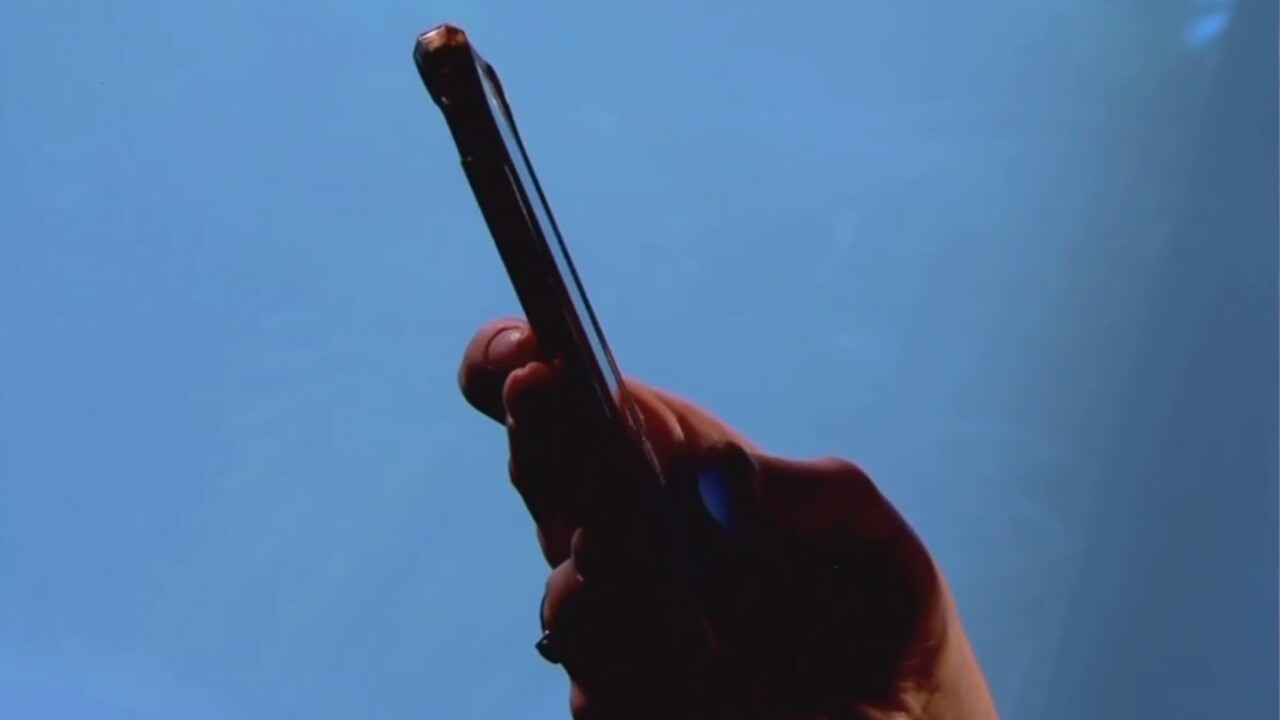
POLL
GLOSSARY
- animated: full of life or a filmmaking technique where still cartoon images appear to move
- paediatrician: a doctor that specialises in treating children
- obesity: extremely overweight
- sleep apnoea: a condition in which your breathing stops and restarts many times while you sleep
- excess: more than is necessary
- type two diabetes: a chronic disease that affects the way a child’s body processes sugar (glucose) for fuel
- wellbeing: an overall feeling of being well
- quests: adventures
- exposed: when something is revealed
- bouts: periods of time tweens: 11-12 year olds (almost in their teen years)
- devices: an invention or machine
- independently: doing something on your own
- algorithms: order of steps a computer follows to achieve a specific outcome
- depression: a mental health condition causing low mood or loss of pleasure or interest in activities for long periods of time
- anxiety: being very worried about the future and about bad things happening
- resilience: the ability to bounce back after challenges and tough times
- deteriorating: to become worse or of less value
- clinical psychologist: someone who treats people with mental illnesses and emotional problems
- therapist: a mental health doctor or counsellor
- addictive: a dependence on a substance or activity even if you know that it causes you harm
- influencer: someone who is able to persuade a lot of other people
- cyberbullying: when someone uses technology to harass, threaten, embarrass, or target another person
QUICK QUIZ
- What is the aim of the Black Dog Institute’s program teaching kids to manage their own screen time?
- Why did they target 12 and 13 year olds?
- What is scrolling?
- How many young Australians have experienced negative online experiences?
- What is trolling?
LISTEN TO THIS STORY
CLASSROOM ACTIVITIES
Kids News has produced a free Health of the Nation education workbook full of classroom activities to support the information and expert advice in this series.
It has been crafted by one of our expert Kids News teachers and complements the information in these education kit articles.
Sign up to the free Kids News weekly newsletter HERE to access the education workbook plus more news and initiatives.
EXTRA READING
PART 7: How brushing your teeth can make you healthier overall
